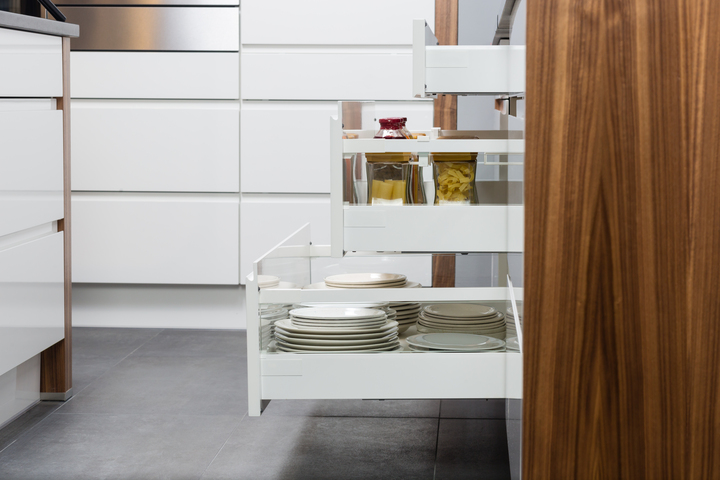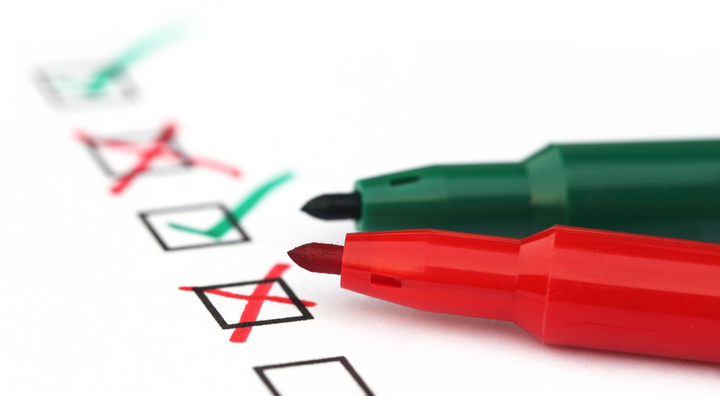Whether it’s a new year, forgetting one more appointment, or just feeling fed up with how our lives go, it happens we want to be organized better. And that’s when questions start coming. Where do I start? How will I find time for such a project? Is it even doable? But don’t throw the towel too soon. Let me show you how to organize your life in one week. Yes, you read right, one week. Over these 7 days, we’ll set up the foundations of the systems that will allow you to go from messy and stressed to effective and relaxed. Your future self will love it!
Day 1: Your plans and goals
Choosing the right planning system
A planning system will help you remember your appointments and tasks on hand, making organizing them more manageable. But choosing the right one is crucial. Your first question should be: physical or digital?
Digital tools, like ClickUp or Trello, offer the convenience of syncing across devices and take place on the smartphone you already carry around and your computer. They are also a better option when you collaborate often with others.
On the other hand, physical planners won’t suffer from technical glitches. Their offline nature lowers distraction and allows you to plan more thoughtfully. They can also act as a journal of your accomplishments.

-
Save
My choice goes for the planner, or more precisely, for a bullet journal, as having to create tasks in an app disrupts my thinking flow more than writing it down. I also take advantage of the bullet journal’s personalization to have a planning system fully tailored to my needs. Whichever you choose, ensure it aligns with your lifestyle. It should make the process of organizing feel seamless. However, don’t stress too much about this choice. If you find later that your app or planner doesn’t meet your expectations, you can still change your mind.
Once you decide what planning tool you’ll use, find time to use it actually. It may become your morning ritual, signing the start of your day, or your evening habit, allowing you to slow down and dump your “should” and “have to do” away from your brain for better sleep.
Defining your goals

-
Save
Setting goals helps make informed decisions about organizing your life this week. So, let’s start by establishing clear, achievable goals. What parts of your life feel most chaotic? Is it keeping up with the chores, managing your schedule, or perhaps finding time for me time? Identifying these areas will give you a clear focus for the week and beyond.
Write these goals down, making them as specific as possible. You must know when you meet them. Only a few things are more disheartening than a goal you’ll never be able to reach.
Day 2: Decluttering to clear your house and mind

-
Save
Decluttering is more than just tidying up. It’s about making your space more manageable, easier to clean, and removing distractions preventing you from focusing.
Start with the area that causes you the most stress. Is it your kitchen, workspace, or even the packed cupboard in your bathroom? Set a timer for 30 minutes and focus solely on this area. You’ll be surprised how much you can achieve in a short burst of focused effort. Imagine what you’d achieve if you decluttered your house for a whole day!
If you feel overwhelmed at the sight of your space, I’ve created a checklist of almost a hundred things you can remove from your home quickly. Decluttering them is an excellent way to build momentum, and once those items are gone, you’ll see more clearly what else you can let go.
Day 3: Build your cleaning habit

-
Save
Creating a clean, organized home needs occasional deep cleanings but, more crucially, consistent cleaning habits. These daily and weekly habits keep your living space in order, prevent clutter from building up, and make cleaning easier. The key is to add manageable tasks, one at a time, into your everyday routine, transforming them into habits that naturally fit into your lifestyle.
For the morning, what about making the bed, wiping down bathroom surfaces after use, or unloading the dishwasher? You can tidy the living room, clean the kitchen counters, or fold your day’s laundry in the evening. To make this more tangible, you can choose one habit to start with from my posts on cleaning tasks to include in your morning routine or cleaning tasks for the evening routine. Remember, the goal is to select a task that feels doable and positively impacts your daily life. Consistency is key in habit formation. That’s why we start with a daily habit. It will soon become something you do without thinking about it.
Day 4: Streamlining storage and organization

-
Save
Adequate storage and organization can dramatically improve the functionality of your space. Today, focus on organizing one key area in your home. This might be your living room shelves, kitchen pantry, or coat closet. Start by assessing your current storage solutions and what you might need. Simple additions like drawer dividers, storage bins, or shelves can make a big difference.
As you organize, remember the principle of ‘a place for everything and everything in its place.’ The goal is to create a system where items are easily accessible and easy to put away. Put the items you use often where they are easy to reach. On the contrary, those you use occasionally can go on the top shelf. This organization saves you time and reduces stress, as you won’t be constantly searching for things. Remember, the best storage solutions are those that work for you and make your life easier.
Day 5: Implementing minimalist meal planning
A well-organized meal plan can save you time, reduce waste, and take the stress out of cooking. Today, let’s focus on creating a minimalist meal plan. Start by listing the meals you could prepare with your eyes closed and are quickly cooked. Then, find ways you can tweak them to have several other ideas. For example, one of my go-to recipes in winter is roasted veggies. I can do it with almost all the vegetables available this season: carrot, beet, potato, cabbage, squash… Add to that different seasonings, and with one idea, I get multiple dish variants. Then, when creating my weekly meal planning, I choose one of these variants for several dishes. I only have to add one or two more meals, and my planning is ready.

-
Save
Minimalist meal planning creates efficiency and simplicity. It’s not about serving gourmet meals every night but rather about having a practical approach to cooking. To go further, I started batch cooking. It can also be a huge time-saver as you cook several meals at the same time once or twice weekly. On the other days, you only need to reheat your meal, limiting dishwashing and kitchen cleaning. It’s also easier to make healthier food choices when you have several options in the fridge.
Day 6: Simplifying the laundry management

-
Save
Laundry can quickly become an overwhelming task if not managed properly. On this 6th day, we’ll set up a laundry system that simplifies this chore. If daily laundry suits your schedule, doing smaller loads can prevent pile-up and make it more manageable if you air dry your laundry. Alternatively, setting aside a specific day for laundry can work, too, especially if you tend to forget laundry in the washer.
For today’s task, I encourage you to read my article about creating a laundry schedule to find your perfect routine. Then, think about how you sort, wash, and store your clothes. Can these processes be streamlined? Perhaps using different baskets for different types of laundry (colors, whites, delicates) can save time on sorting. Also, immediately folding and putting away laundry can prevent the build-up of clothes around your home. Find a rhythm that works for you and stick to it.
Day 7: Reflecting, adjusting, and planning ahead

-
Save
Reflect on how your organized your life during this one week. What strategies worked well for you? What areas need more attention or a different approach? Use these insights to refine your plan for the coming weeks. Remember, the goal of this week is not to achieve perfection but to establish a foundation you can build upon. You’ve started decluttering, cleaning, and organizing your home, and now it’s time to schedule your following sessions into your planner or app of choice.
Also, consider how you can integrate these new habits into your long-term routine. Remember how they’ve impacted your daily life and well-being. Going forward, keep adjusting your systems to suit your evolving needs better. Organization is a dynamic process – it grows and changes with you.
One week to organize your life

-
Save
Congratulations on completing your one-week journey to a more organized life! This process is about much more than just a tidy home; it’s about finding systems to remove stress and overwhelm from the chores. This week has been the beginning of your organized life. Keep following your plan for the future, and continue to adapt and refine your routines.
Need some help to create a daily routine? With The Lazy Cat’s Guide to a Clean Home, I will assist you during the 30 days of your habit creation!

-
Save
Share via:





This is so simple, calming and do-able, especially for ADHD tendencies! Thank you so much for this straight-forward ‘coaching’ plan which breaks organizing goals and clutter-clearing intentions down into manageable steps. A no-nonsense approach. Will check out your links also.
Thank you Anna! Happy to help 🙂